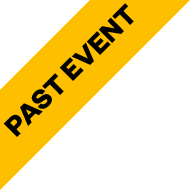From WWII to Present: Integrating Peace Education into Grade 6–12 Classrooms

Integrate a multidisciplinary approach to peace education into your teaching. With a focus on conflict management and peace-building efforts between Japan and the wider world (including the U.S. and East Asia), this course emphasizes using primary sources, informational texts and art to facilitate literacy experiences and the effective incorporation of the Common Core standards. Topics include peace movements that have grown out of the atomic bombing of Hiroshima and Nagasaki, the story of Sadako and the 1,000 paper cranes, Pearl Harbor, Japan’s Constitution, Japan’s role in the international community, and 9/11 from a global perspective.
Class runs 9 AM–4 PM.
Session 1:
Identify Peace and Discuss Conflict Management
Saturday, March 9, 2013, 9 am-4 pm
Dr. Alison Milofsky, Senior Program Officer, Academy for International Conflict Management and Peacebuilding, US Institute of Peace;
Dr. Kent Calder, Director, Edwin O. Reischauer Center for East Asian Studies, Johns Hopkins University
Session 2
From Pearl Harbor to the Atomic Bombings of Hiroshima and Nagasaki: Current Movements Surrounding the Story of Sadako and the 1,000 Paper Cranes
Sunday, March 10, 2013, 9 am-4 pm
Dr. Michael Barnhart, Chair and Professor of History, SUNY Stony Brook;
Mr. David Janes, PhD Student, Sociology, The New School For Social Research (NSSR);
A family member of Sadako Sasaki in Japan (via skype, tentative)
Session 3
The Constitutions of Japan and the U.S.-Japan Mutual Security Treaty (ANPO)
Sunday, April 7, 2013, 9 am-4 pm
Dr. J. Mark Ramseyer, Mitsubishi Professor of Japanese Legal Studies, Harvard Law School;
Dr. Robert Fish, Director of Education Programs, Japan Society, New York
Session 4
Education about Disarmament and Current Issues of Non-Nuclear Proliferation
Saturday, April 20, 2013, 9 am-4 pm
Mr. David Speedie, Director, U.S. Global Engagement Programs, Senior Fellow, Carnegie Council for Ethics and International Studies;
Mr. Robert Croonquist, Founder, Hibaksuha Stories / Youth Arts New York (tentative)
Session 5
Role of Museums and Cultural Institutions in Examining Issues Related to Peace
Sunday, April 21, 2013, 9 am-4 pm
Dr. Takashi Yoshida, Associate Professor of History, Western Michigan University;
Directors of peace museums in Japan and in the U.S.(via Skype)
Mr. Steve Leeper, Chairman of the Hiroshima Peace Culture Foundation / Hiroshima Peace Memorial Museum (via Skype);
Dr. Joyce Apsel, Liberal Studies Program, New York University (via Skype);
Visit to 9/11 Tribute Center / 9.11 Memorial for a guided tour by Ms. Meriam Lobel, Curator, 9/11 Tribute Center
Session 6
Worldwide Grassroots Peace Building Movements Initiated by NGOs and Individuals
Saturday, May 4, 2013, 9 am-12 pm (half day)
Dr. Joyce Apsel, Liberal Studies Program, New York University
The afternoon session is only open to participants attending all sessions.
Content subject to change.
Registration Options:
To receive 3P credit from the NYC Department of Education After School Professional Development Program:
Please register and pay the non-refundable ASPDP fee ($125) directly on the ASPDP website. After successfully registering on the ASPDP website, please send this completed form (PDF) and a check for $100 ($85 for Japan Society members), made payable to Japan Society, to Japan Society, Education Programs.
For non-credit registration:
All six sessions, non-credit tuition: $225/$190 Japan Society members
Per-day, non-credit tuition: $40/$34 Japan Society members
Half-day, non-credit tuition: $20/$17 Japan Society members
Note: You are encouraged to sign up for multiple sessions of your choice.
To register, please send the Registration Form (PDF) and a check or money order, made payable to Japan Society, to Japan Society, Education Programs.
- Saturday, April 20, 2013
- 9:00 am